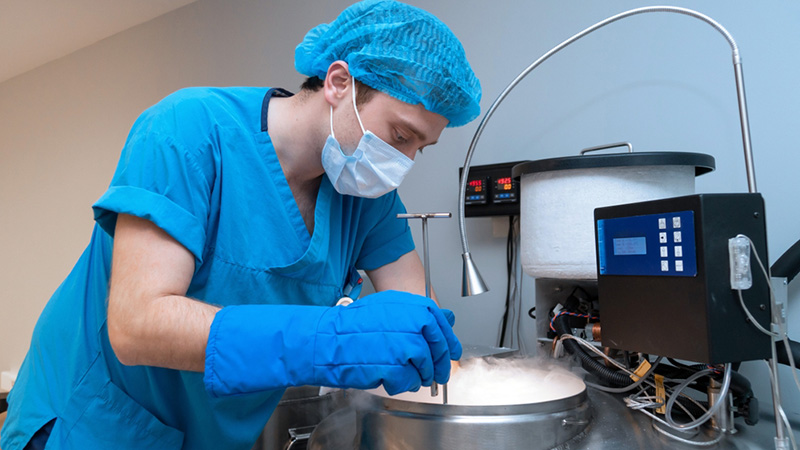Getting pregnant can be a simple affair – but for some folks, it’s not. We talk to Dr Anupriya, Dr Cathryn Chan, Dr Fong Yang and Dr Lim Min Yu from Astra Women’s Specialists about fertility problems, freezing eggs in Singapore and some misconceptions around infertility and trying to get pregnant.
What is the biggest misconception about fertility or infertility?
Often, couples may not realise that they’re experiencing fertility problems. They may attribute their unsuccessful attempts to them just not trying hard enough.
Generally speaking, if you’re having sexual intercourse two to three times per week during the fertile period, this is considered a sufficient effort. If you’re unable to conceive despite doing this, it’s possible there’s a larger issue at play.
How common is it to experience fertility problems?
Over the years, we’ve seen an increasing number of couples seeking help in the fertility department. These days, it’s common for couples to experience fertility problems. It could be due to couples getting married later, delaying their decisions to have children, or experiencing stress at work.

How long should you try to conceive before seeking help?
This depends on the woman’s age, and whether she has any underlying gynaecological conditions. If the woman is below 35 years old, the couple should seek medical help if they have been unable to conceive after one year of trying. For women above 35, the timeframe is shorter: seek medical help if you’re unable to conceive after six months of trying.
Finally, for women with underlying gynaecological conditions such as Polycystic Ovary Syndrome (PCOS), endometriosis, fibroids or ovarian cysts, you may seek help before six months or even schedule an appointment with your gynaecologist once you decide to start trying. For these women, the risk of infertility is higher, and it’s worth consulting your doctor early on in the process.
What’s the most important thing to keep in mind about fertility?
Getting pregnant can be a hit-or-miss process. It’s easy for some, but may require more time for others. However, worry can affect your chances, so don’t put yourself under undue stress.
How can you treat infertility?
There are a few fertility treatment options. These can be broadly categorised into medical treatment, surgical treatment and Assisted Reproductive Techniques (ART). Here’s a breakdown:
- Medical treatment includes well-timed sexual intercourse (where your gynaecologist carries out follicular tracking to help you track your ovulation more accurately). If you’re not ovulating regularly, medicines such as Letrozole or Clomiphene may be used to help.
- Surgical treatments are used when the cause of infertility is an underlying gynaecological condition such as endometriosis, fibroids or ovarian cysts.
- ART includes in-vitro fertilisation (IVF) and intra-uterine insemination (IUI). IVF is where the doctor surgically removes the eggs from a woman’s ovaries, combines them with sperm in the laboratory, and returns them to a woman’s body. IUI is where sperm is placed into the uterus by a gynaecologist to facilitate fertilisation of the egg.
For male infertility, there are certain medications that men can take to improve sperm quality and count. Improving the sperm is a crucial factor in increasing a couple’s chances of getting pregnant without IVF. Even in the case where IVF is required, higher quality sperm is likely to result in better success rates.
Now that elective egg freezing is possible in Singapore, is it a good idea for women to freeze their eggs?
Egg freezing is a process in which a woman’s eggs are retrieved, frozen and stored. This essentially preserves the fertility of a woman who wants to conceive later on in life.
In Singapore, elective egg freezing will be allowed as of 2023. This introduces the key benefit of enabling women to avoid the issue of declining egg quality as they age.

However, egg freezing is an invasive procedure, and there is no guarantee of a successful pregnancy with frozen eggs. As such, women should consult their doctor to better understand the risks and benefits, and find out if egg freezing is a viable option for them.
Written in collaboration with Dr Anupriya, Dr Cathryn Chan, Dr Fong Yang and Dr Lim Min Yu from Astra Women’s Specialists
6333 6636
Read more in our Health & Fitness section!




